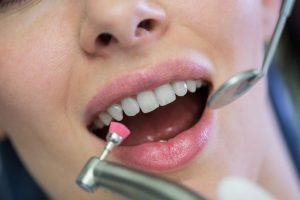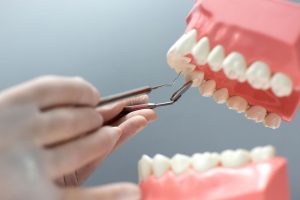If you’ve never had a cavity before, the thought of getting fillings can sound a little intimidating. One of the most common questions people ask is, Do they numb you for dental fillings? The answer depends on a few factors: How big the cavity is and how close it is to the nerve.
When you are getting dental fillings in North Edmonton, below is what to expect with the process and as it relates to pain and numbing.
When Do Dentists Use Numbing for Fillings?
- Deep Cavities—If your cavity extends deep into the tooth and is close to the nerve, numbing will almost always be used. This will prevent any sensitivity upon removal of the decay and filling by the dentist.
- Sensitive Teeth—If your teeth are extremely sensitive or you have trouble with pain, the dentist will usually administer numbing medication even for a minor cavity. Your comfort is important, and local anesthesia will provide a much easier experience.
- Patient Anxiety—If you are one of those patients who get anxious about being in a dental clinic, you could request numbing. A lot of patients feel less anxious knowing they won’t feel any pain during dental treatments.
When Might Numbing Not Be Needed?
- Very Small Cavities—If your cavity is very small, only affecting the outer layer of the tooth, numbing may not be needed. The dentist will often be able to clean out and fill the area very quickly and likely without discomfort.
- Surface Work—Occasionally, fillings are done in areas that are either surface level or not very sensitive. The dentist will often not need to provide numbing in these situations.
- Laser or Air Abrasion Tools—A dental clinic in North Edmonton regularly uses tools such as aerosol abrasion or laser reviewers, which are less invasive and don’t require numbing. The advantages of these techniques are that they are less loud and they are more gentle. This can be a huge plus for people who are anxious about dental appointments.
What Does the Numbing Process Feel Like?
- A Small Pinch
The numbing process usually starts with a gel that goes on your gums. Then, a small needle is used to inject the numbing medicine. It may feel like a quick pinch, but the area becomes numb very quickly. - Tingling and Numbness
After the injection, your lips, cheeks, or tongue may feel tingly or puffy. This sensation lasts for a few hours, and it’s completely normal. - No Pain During the Procedure
Once you’re numb, you won’t feel pain, only a bit of pressure or vibration as the dentist works on your tooth.
Can You Ask Not to Be Numbed?
- Yes, You Can Ask
If your dentist feels the filling is small and you’re okay with a little sensitivity, you can request not to be numbed. Just remember, some pain might still happen depending on the depth of the cavity. - Honest Conversation Matters
Always talk with your dentist about your pain tolerance and preferences. A dental clinic near you will let you know what’s best in your situation and can adjust their approach to keep you comfortable.
What Happens After the Filling?
- Numbness Wears Off in a Few Hours
You’ll likely feel numb for 2–4 hours after your appointment. Avoid chewing on that side of your mouth until the feeling returns to prevent biting your cheek or tongue. - Mild Sensitivity Is Normal
Some people feel a little sensitivity to cold or pressure for a few days after a filling. This usually goes away on its own.
Visit The Dentists at Northgate Today
Looking for a place that makes fillings and other treatments stress-free? At The Dentists at Northgate, we put your comfort first. Whether you need a small filling or more extensive care, we take time to explain every step and make sure you’re relaxed during your visit.
Don’t wait for tooth pain to get worse. Book your appointment today and see how easy it can be to take care of your smile in a welcoming environment. Your teeth and your future self will thank you!









